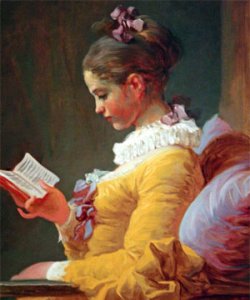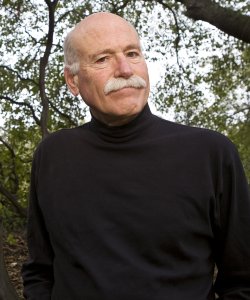The Grim Reader

The National Endowment for the Arts releases To Read or Not to Read—a follow-up to the nonprofit's 2004 report, Reading at Risk—which further expounds on America's declining reading habits.
Jump to navigation Skip to content

The National Endowment for the Arts releases To Read or Not to Read—a follow-up to the nonprofit's 2004 report, Reading at Risk—which further expounds on America's declining reading habits.

With nearly four decades of editing experience, publishing veteran Pat Strachan reveals the qualities she looks for in fiction, her approach to editing, and how writers can help themselves navigate the industry.

The short stories of Tobias Wolff, collected in four books during the past three decades, derive much of their strength from what is left unsaid—but what is said is usually violent and almost always disturbing.
Page One features a sample of titles we think you'll want to explore. With this installment, we offer excerpts from New Collected Poems by Eavan Boland and The Well and the Mine by Gin Phillips.

“Can you really teach creative writing?” Professor and novelist Dan Barden answers this while offering his own unorthodox approaches to teaching a workshop.

Former executive director of the Asian American Writers’ Workshop Quang Bao talks about his tenure with the organization and its influence on Asian literature over the past seventeen years.

A look at Jellyfish, winner of best debut feature at the 2007 Cannes Film Festival and written and directed by Etgar Keret, an Israeli fiction writer, whose most recent collection of stories, The Girl on the Fridge, will be published by Farrar, Straus and Giroux.
Literary MagNet chronicles the start-ups and closures, successes and failures, anniversaries and accolades, changes of editorship and special issues—in short, the news and trends—of literary magazines in America. This issue's MagNet features Pindeldyboz, Narrative, and Bellevue Literary Review.
Small Press Points highlights the happenings of the small press players. This issue features New Directions, Milkweed Editions, Pushcart Press, City Lights Booksellers and Publishers, A Midsummer Night’s Press, and Akashic Books.
Why do some writers prefer company and background noise, while others need isolation? Why do some need the magical monotony of sameness, and others the inspiration of variety? What does it mean for a writer to be locked into a place? What does place even mean to a writer?